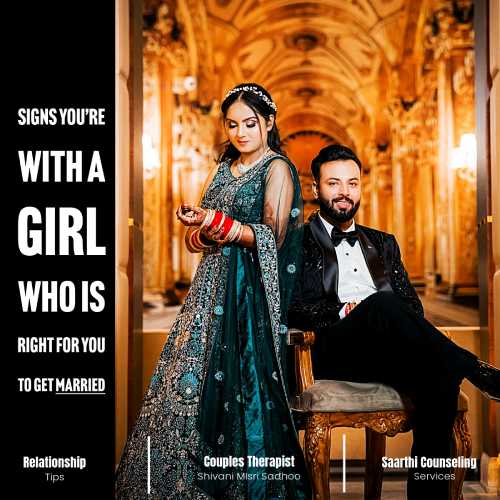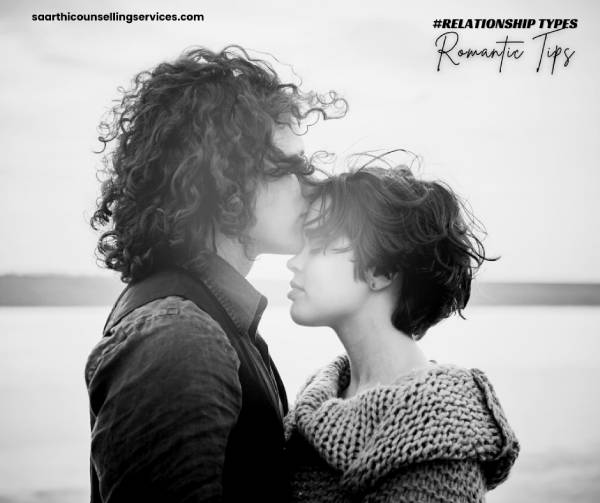Are you head over heels for your girl, planning the big engagement, but still wondering if she’s “the one”? Finding the right person to spend your life with can feel like searching for a needle in a haystack. Amidst the sea of possibilities, there are certain signs that can help guide you towards someone truly special. While romantic gestures and thoughtful actions certainly play a part, the ultimate litmus test lies in how she makes you feel.
How do you find out if she’s the one you’ve been wanting to tie the knot with?
Top marriage counselor and relationship expert in India Shivani Misri Sadhoo explains how.
Empathy
Finding “the one” involves recognizing someone who empathizes genuinely. She listens and understands your feelings without judgment. Her compassion and support during tough times show her commitment. Marrying her means having a partner who stands by you through thick and thin, making every challenge easier to face together.
She’s your best friend
Choosing a life partner is like embarking on a journey with a trusted companion, and finding that person who seamlessly fits into the role of your best friend can make all the difference. You can share your feelings with her comfortably. You don’t need to pretend. You can be yourself. Whatever happens, she’s always there for you. So, when you find that special someone who makes you feel at home, who makes you laugh until your stomach hurts, and who you can’t imagine facing life without, you’ll know that she’s the one you should marry.
She always encourages you
Marrying a woman who constantly encourages and supports you is a blessing beyond measure. Her unwavering belief in your abilities fuels your confidence and drive. Even in your darkest hours, she sees your potential and lifts you up with her boundless faith. With her by your side, you’re inspired to conquer any challenge, knowing she believes you’re capable of magic. She’s not just a partner; she’s your greatest ally and cheerleader.
Shared goals and values
Shared goals and values serve as the compass guiding you to the right partner for marriage. When your beliefs, priorities, and long-term aspirations align with hers, it signals compatibility and ensures a harmonious journey together. While differences add spice, fundamental agreements on family, career, and life goals lay the groundwork for a fulfilling relationship. Finding someone who complements your strengths while sharing your core values is the key to a lasting union.
You trust her
Trust is the foundation of a healthy relationship. If you can’t trust your partner, who will you talk to about your deepest feelings? When you’re with someone trustworthy, you feel secure because you know they care about you. Whether it’s staying faithful or keeping their promises, a woman who is honest and dependable is someone you can imagine a future with.
When arguments are productive
When you’re able to have productive discussions, even during disagreements, it demonstrates a level of emotional intelligence and communication skills that are vital for a healthy relationship. It means you’re able to listen actively, express your own thoughts and feelings honestly, and find compromises that satisfy both parties.
Mutual respect is a must
Mutual respect in a relationship is a cornerstone of a healthy partnership. When your girl respects you as an individual, honors your boundaries, and treats you with kindness, it indicates a strong foundation for a lifelong commitment. In her, you find not just a partner, but a soulmate worthy of a lifelong journey together.
She is independent
She is strong and independent, with a mind of her own. This quality assures you that she won’t simply follow the crowd but will stand by her beliefs. Her strength inspires you, and her independence assures you of mutual respect and space within the relationship. Knowing she can navigate life’s challenges independently gives you confidence in facing them together as a team.
These are just some of the essential qualities couples therapist Shivani Misri Sadhoo highlights for finding the right partner. Ultimately, marrying someone who embodies empathy, friendship, encouragement, shared values, trust, effective communication, mutual respect, and independence ensures a fulfilling lifelong journey together.









